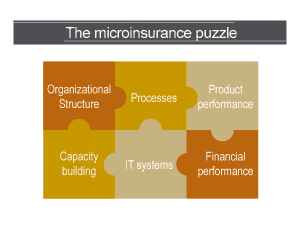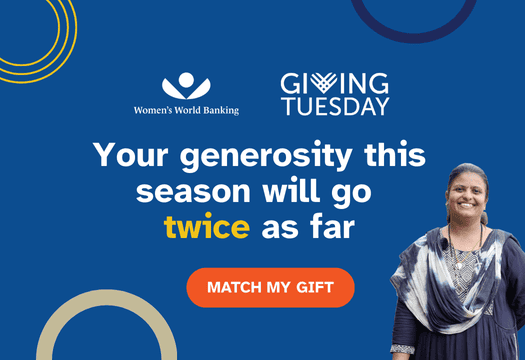
For three years, Women’s World Banking has been working with network members in Uganda, Morocco and Egypt to replicate the “Caregiver” microhealth insurance product that we developed with Microfund for Women (MFW). Bringing the participants together in Jordan, where it all began, was a unique opportunity for participants to see the possibilities for their nascent products. Visits to MFW branches and meetings with clients showed the participants first-hand how the product is promoted in branches, explained by loan officers and valued by clients.
But one of the most valuable aspects of the workshop was peer exchange. Project partners brought to life vivid experiences on everything from marketing materials to fraud policy with the participants who are just starting to develop their insurance offering. For instance, the CFO of our network member in Pakistan learned a way to increase operational efficiencies by negotiating with the insurer to let the organization settle claims up to a certain amount themselves. In Lebanon, the organization’s biggest challenge was finding the right insurance partner. They heard about selecting the right partner and negotiation strategies from a bank in Uganda who had already gone through the process. A marketing executive from our partner in Morocco was inspired by some of the strategies used by our partner in Jordan to promote the new family coverage policy to clients. The diversity of participants and the level of collaboration during the workshop reflected the global nature and broad expertise of the Women’s World Banking network. The lessons learned from our projects and from the exchanges in this workshop will be shared more broadly in a new publication slated to be released by the end of the year.
Women’s World Banking knows that we can’t reach the over one billion women who currently don’t have access to basic financial services without our 40 financial institutions partners. By convening workshops such as this one, Women’s World Banking facilitates the sharing of capabilities among the financial institutions and amplifies our knowledge of what works for women to help institutions around the world better serve them. A workshop can lead to adoption of effective strategies to serve more low-income women better.
This project benefits from the Agence Française de Développement support. The analysis, views and opinions expressed are those of the author and do not necessarily reflect the position of the Agence Française de Développement.




